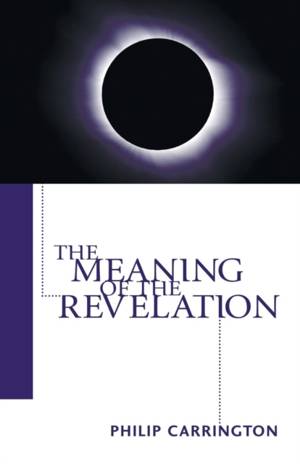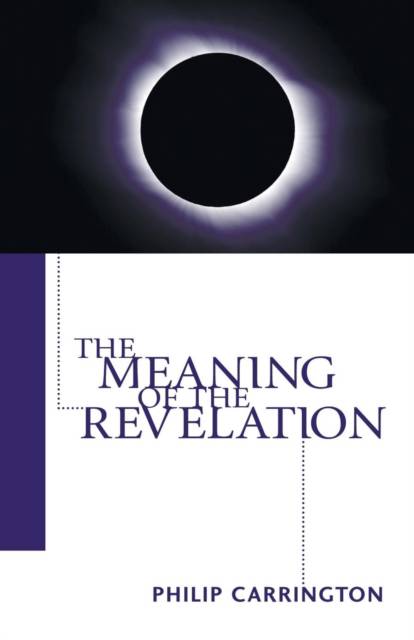
- Afhalen na 1 uur in een winkel met voorraad
- Gratis thuislevering in België vanaf € 30
- Ruim aanbod met 7 miljoen producten
- Afhalen na 1 uur in een winkel met voorraad
- Gratis thuislevering in België vanaf € 30
- Ruim aanbod met 7 miljoen producten
Zoeken
Omschrijving
The object of this book is to provide a running commentary on the Book of Revelation, elucidating its meaning. Other introductory and technical considerations are subordinated to this main quest. Though a scholarly work, it is written in a manner free from technicalities so as to make it useful to the general reader. It was written with the hope that a simple treatise on Revelation's meaning would help clergy and others who often have to deal with people who take it in a false and literal sense. When the Revelation was originally written it was naturally accepted as an account of current events and of events ""shortly to come to pass""; that is how it describes itself (Rev 1:1, 3; 22:6, 10), and that is how it was naturally taken. Unfortunately, the key to its meaning was soon lost, and its mystical symbolism was taken as literal description. When it reflects events of history, it is current events that it reflects. The Revelation represents great principles working themselves out in actual history. The book is a literary unity stamped throughout by the mark of a great genius. It is one of the loftiest mystical poems the world has produced. Revelation insists that certain events of worldwide importance are coming immediately, following the same general lines as Christ's Olivet Discourse, which spoke to events of which the Lord himself declared: ""Truly I say to you, this generation will not pass away until all these things take place"" (Matt 24:34). Philip Carrington was born July 6, 1892, in Lichfield, England, and died October 3, 1975. He was educated at Christ's College, New Zealand; Canterbury University College, New Zealand; and Selwyn College, Cambridge. His degrees included both earned (M.A., D.D., Litt.D.) and honorary ones (S.T.D, D.C.L.). As an Anglican scholar he held various positions in New Zealand (1922), Australia (1924-27), and Canada (1927-60), including the Archbishopric of Quebec. He was the author of fourteen scholarly books on subjects as diverse as apologetics, ecclesiology, the life of Christ, church history, and the New Testament.
Specificaties
Betrokkenen
- Auteur(s):
- Uitgeverij:
Inhoud
- Aantal bladzijden:
- 424
- Taal:
- Engels
Eigenschappen
- Productcode (EAN):
- 9781556356735
- Verschijningsdatum:
- 1/05/2008
- Uitvoering:
- Paperback
- Formaat:
- Trade paperback (VS)
- Afmetingen:
- 145 mm x 216 mm
- Gewicht:
- 512 g

Alleen bij Standaard Boekhandel
+ 113 punten op je klantenkaart van Standaard Boekhandel
Beoordelingen
We publiceren alleen reviews die voldoen aan de voorwaarden voor reviews. Bekijk onze voorwaarden voor reviews.











